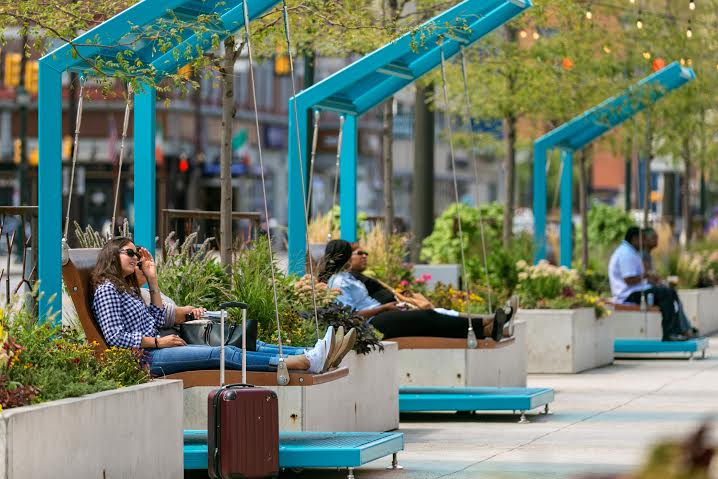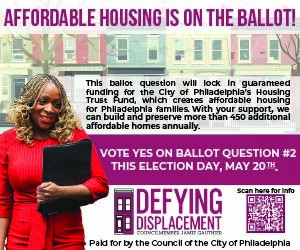University City District, a nonprofit, had always insisted on building public spaces – parks, plazas, a composting facility – that were accessible to all. But, about two years ago, UCD’s Vice President of Planning and Economic Development, Andrew Stober, and his co-workers had a realization: When it comes to equity and inclusion, “We don’t really know what we’re talking about,” Stober said. With a new initiative called “Just Spaces,” they hope that will start to change.
UCD, which built The Porch at 30th Street Station, collects plenty of data on who uses its spaces and how, but it knows less about who doesn’t, and why not. Enter the group’s new self-audit, “Just Spaces,” which is focused on identifying groups that feel unwelcome at UCD’s public spaces, and to help welcome them instead. Most obviously, the initiative might examine proximity – Who can get to a space easily?; infrastructure, since even a swing-set can be inaccessible to some; and commerce, How expensive are the concession stands? Sometimes, inclusion just means selling something other than a gourmet hamburger.
“Just making sure you have a $4 beer on the menu says to people, ‘Even if you don’t have a lot of money, you’re welcome to come here,’ ” Stober said with a smile.
But creating a “just” space includes subtler challenges as well. CUNY’s Setha Low, whose research influenced UCD’s effort, notes that, for example, historic restoration efforts can alienate minority residents: As part of a case study about New York, she writes that “reconstructing a classic turn-of-the-century park is seen as elite exclusionary by some groups of people who do not share this historic vision.” It takes work to identify these subtle cultural variations.
To facilitate Just Spaces, which gets funding from the Knight Foundation, UCD intends to build software that makes it easy to examine and manipulate the data UCD has gathered about its parks, while focus groups will go where maps and data can’t.
On one level, the audit serves UCD’s self-interest as well. The more people use its spaces, the happier philanthropists will be to support UCD. Wealthy donors, Stober said, are losing interest in grandiose public spaces like Chicago’s Millennium Park in favor of humble gathering spots that serve neighborhood residents. As “Just Spaces” strives to expand UCD”s reach, the project is reminiscent of market research.
“The other way to think about this is, ‘What’s the latent demand?’ ,” said Stober.
In business-school speak, latent demand means more than just an untapped market. It also means a set of needs that, due to some barrier, aren’t being met. To UCD, removing that barrier and meeting those needs is a form of justice.
– Eduard Saakashvili









November 8th, 2017 at 10:41 am
Spending money trying to convince people to go sit on a swing that they are already 100% free to go sit on if they feel like it is “a form of justice”? It’s park planning, and that’s a good thing, but it’s not “justice.”